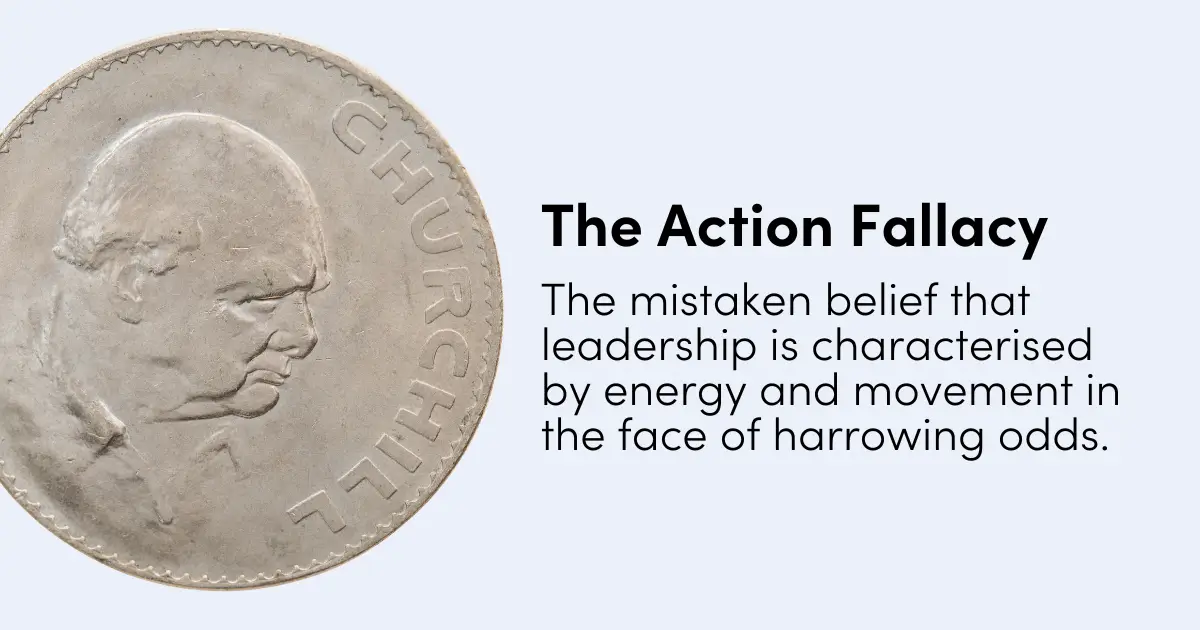Martin Gutmann: Do We Celebrate The Wrong Leaders?
Martin Gutmann's "The Unseen Leader" challenges the "Action Fallacy," revealing history's true lessons on effective leadership.
Martin Gutmann's "The Unseen Leader" challenges the "Action Fallacy," revealing history's true lessons on effective leadership.
Why do we elect, listen to and celebrate the wrong leaders? Martin Gutmann, speaker, business Historian, author, and professor at the Lucerne School of Business, asks this intriguing question — particularly pertinent in 2024 when about 49% of people globally will participate in a national election.
The Unseen Leader: How History Can Help Us Rethink Leadership is a #1 Amazon bestseller. In it, he challenges the "Action Fallacy" - the mistaken belief that great leadership requires a propensity for action. Organisational psychologist Adam Grant calls it "a provocative look at what history really teaches us about effective leadership."
“A provocative look at what history really teaches us about effective leadership. This book will challenge you to rethink some of your core assumptions about what it takes to align people around common goals.” — Adam Grant, #1 New York Times bestselling author of THINK AGAIN
Martin's writing and thought leadership pieces have reached over 60 million people through articles in top business magazines like Forbes, Big Think, Fast Company, and Minute Hack. He also regularly appears on well-known management podcasts such as Phronesis, The Leadership Podcast, and We Are Human Leaders.
Today, we’re exploring some of the main arguments of Martin’s book.
Martin Gutmann's The Unseen Leader explores several key themes that challenge traditional perceptions of leadership. Here are the main themes highlighted in the book:
The book emphasises the value of understated leadership, arguing that effective leaders often operate behind the scenes rather than in the spotlight. Martin suggests that the most impactful leaders are not necessarily the loudest or most charismatic but those who quietly inspire and influence others through their actions and decisions.
Martin introduces the concept of the "Action Fallacy," which is the mistaken belief that great leadership is synonymous with being action-oriented and decisive. He critiques this notion by illustrating how many historical leaders who achieved significant outcomes did so through thoughtful decision-making rather than impulsive actions.
According to the action fallacy, lively action — Shackleton’s straining his steam engine in his battle against the offending pack ice or Churchill’s vivid speeches and ceaseless hounding of his generals to attack — is the essential quality of a good leader and the ultimate indicator of the leader’s effectiveness.

The book draws on historical examples to redefine what true leadership means. Martin examines leaders who have remained largely unrecognised in history, highlighting their substantial contributions despite not fitting the conventional heroic narrative. This perspective encourages readers to look beyond traditional archetypes and appreciate the diverse forms leadership can take.
Martin discusses the importance of environmental intelligence, which refers to a leader's ability to understand and navigate their context effectively. He contrasts leaders who react haphazardly to crises with those who assess their environment and adapt their strategies accordingly, illustrating how subtlety and awareness can lead to more effective leadership.
The theme of navigating uncertainty is prevalent throughout the book. Martin suggests that leaders often feel compelled to take action to regain control during times of crisis. Still, true leadership involves recognising when to accept humility and adapt to circumstances beyond one's control.
These themes collectively encourage a rethinking of leadership paradigms, urging individuals and organisations to recognise and cultivate the qualities of leaders who may not fit the traditional boxes but whose influence is profound and lasting.

To engage with Martin Gutmann's work beyond the book, there are several options:
His recent TED Talk, Are We Celebrating the Wrong Leaders?, has had over 1,000,000 views:
Martin delivers story-driven talks centered on vibrant cases and historical anecdotes, anchored in modern organisational psychology and management science evidence. He is a regular corporate and keynote speaker on topics such as:
Martin is exclusively represented by PepTalk. To enquire about booking Martin for a speaking engagement, email hello@getapeptalk.com.

💡 Would you like to tackle your leadershiip challenges with an expert speaker? Let us know, and we’ll find the perfect PepTalk expert for your organisation. Email us at hello@getapeptalk.com or send us a message via the chat. You can also call us on +44 20 3835 2929 (UK) or +1 737 888 5112 (US). Remember, it’s always a good time for a PepTalk!